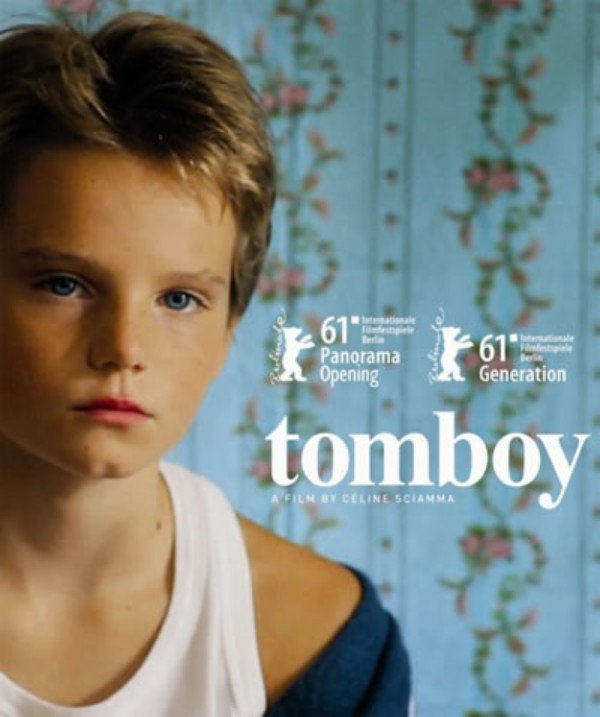Tomboy
Film Critique by Georgie Bean
Tomboy chronicles the summer experiences of 10-year-old Laure (played by Zoé Héran), as they navigate identity on the cusp of adolescence. Laure is given the chance to redefine their self-hood after moving into a new building and introducing themselves as a boy, Mikäel, despite maintaining their identity as a girl at home.
Released in 2011, the film follows Laure/Mikäel as they form relationships in this new environment, along with exploring the tension that arises from simultaneously holding two identities that seem to be in direct contrast with one another. The film also includes scenes that capture and emphasise the beauty that resides in our everyday interactions, from a nostalgia for summer to the small instances that make up the fabric of a family. These moments of conflict and comfort are perfectly balanced, creating a rich, warm film. Viewers are able to be fully absorbed into the film as it is left undefined by genre, allowing the story to grow organically without having to fit within a certain structure.
Tomboy takes the larger questions of gender, identity, and growing up, and applies them on the micro scale, zooming in on the struggles that Laure/Mikäel goes through to appease the cultural expectations of gender on either end of the spectrum. The film provides a deep dive into their self-expression as it is judged socially by those around them. Depending on the gender they adopt, different hobbies, clothes, and friends are expected of them, a conflict that is weighed and challenged by the characters in the film as well as by its viewers. However, the film’s age means it operates as more of a time capsule rather than a film reflecting the attitudes of the modern day. Since its release, large strides have been made in understanding LGBTQI+ identities, and a more common understanding of transgender and non-binary identities is present culturally. As long as the film is viewed within this context, it provides an excellent exploration of gender in an environment in which knowledge of these different identities is largely unknown, rather than the norm.
In the context of French culture, an additional layer of conflict is added within Laure/Mikäel’s experiences. The French language provides little room for someone to exist outside of gender, a problem that Laure/Mikäel must tackle within the film. An obvious example of this is the suspense that arises when Mikäel’s friends meet Laure’s family and use masculine forms of words, exposing how there is nowhere for the Laure and Mikäel identities to coexist together in the language. At its core, the French language is dictated by gender; words are definitively divided into the boxes of masculine and feminine. Gender is ultimately an integral part of its construction. Despite strides being made more recently to provide space for people to present themselves with authenticity linguistically, such as the introduction of gender-neutral pronouns like ‘iel,’ the film highlights the necessity for continued dedicated efforts to introduce gender neutrality into the French language. However, while the film highlights these faults, it maintains a love for French culture. The film affectionately portrays day to day life and activities within France, from children’s games to summertime activities, and viewers are given an authentic insight into the smaller aspects of French culture that can be missed in larger scale films.
Tomboy is an inherently unique story given the individuality of Laure/Mikäel’s situation as they strive to redefine themselves in a new social environment. Nevertheless, the themes of identity, relationships and growing up that are drawn upon within the story create a film that anyone can connect with on an emotional level, if not an experiential one. Through examining the conflicts that occur within Laure/Mikäel’s everyday life, a universal truth is brought forward: identity and self-expression are a confusing and disorientating process, and one that everyone has had to struggle through. Even if their experiences are not identical to those reflected in this story, everyone can identify with this sentiment. The audience gains a chance for reflection in Tomboy, along with an insight into the everyday experiences that comprise the lives of people in France. The film is a thoroughly emotional, insightful and impactful piece, one that is best enjoyed with an open mind.
Georgie Bean, the author of this film review, is a student of international relations and French at the Australian National University.





